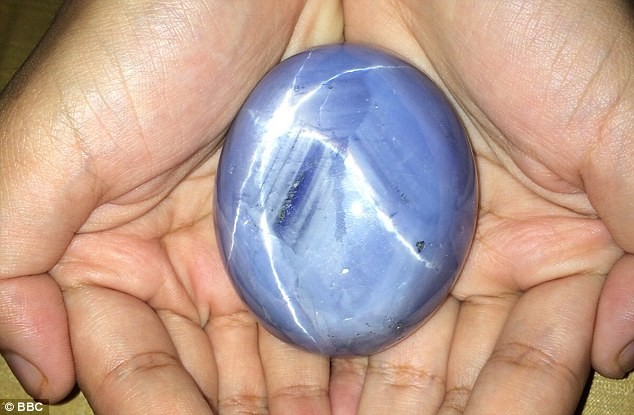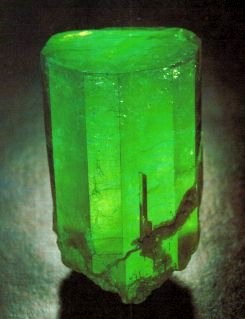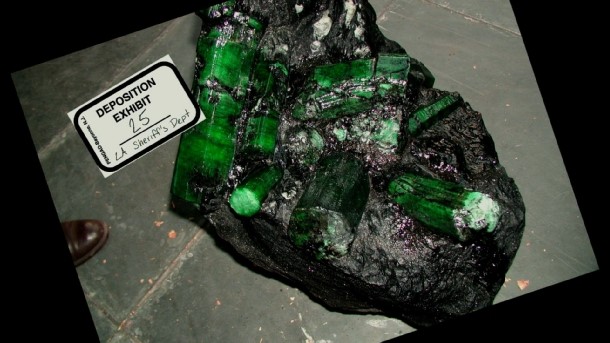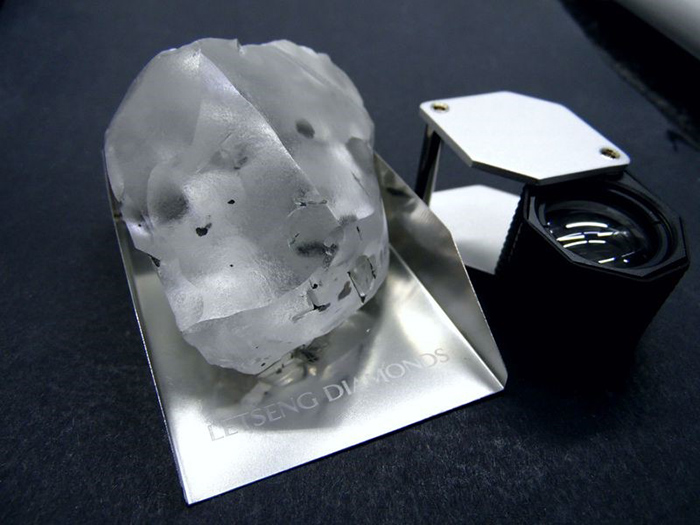As Elizabeth Taylor once said: “I adore wearing gems, but not because they are mine. You can't possess radiance, you can only admire it.”
It’s a good philosophy, because when it comes to the world’s biggest, rarest and most extraordinary gemstone discoveries, no one—not even billionaire President Donald Trump—could afford the possession.
We’re not talking about the average diamond engagement ring that sets you back $4,000 and was probably grown in a lab. And we’re not talking about the $3,000 ruby that was probably treated.
We’re talking about the rarest gemstones in the world, like the ‘Guinness Emerald’ that came out of Fura Gems’ Coscuez emerald mine in Colombia, where excavation has only reached 10% and the next gem of the century is just waiting to be discovered.
Every year, the mining industry grows by hundreds of billions of dollars. The global economy is booming and demand for precious jewels, particularly colored gemstones, has never been higher.
That means that the greatest discoveries have yet to be made.
Here are just five examples of stones that broke all the records:
#1 “Star of Adam” Blue Star Sapphire—$100-300 Million
The world’s largest blue sapphire was discovered in Sri Lanka in early 2016. Named the “Star of Adam,” the massive stone weighs an incredible 1,404 carats.
The stone is a blue “star” sapphire, so named due to the bright six-pointed star that appears whenever light is reflected on the stone’s surface.
Estimates of the stone’s value range from the $100-$175 million range to as much as $300 million.

This single stone is worth the annual gem industry of Sri Lanka, which averages $103 million per year in exports.
Interest in blue stones increased worldwide after the royal wedding of Kate Middleton and Prince William in 2011. Middleton wore a 12-carat blue sapphire engagement ring, piquing interest in the stones and sending demand upwards.
But the royal stone has nothing on the massive Star of Adam.
#2 Guinness Emerald—$500 million
Here’s a stone so grand, it made it into the Guinness Book of World Records.
The 1759-carat emerald was discovered at the Coscuez mine, owned by Fura Gems. It was for several years the largest un-cut emerald on earth.

Only 10 percent of the Coscuez mine has been explored, which means there could be several stones like the Guinness Record emerald locked underground.
Fura Gems recently announced its total take over of the Coscuez mine. For only $10 million, the company took possession of a mine that could yield hundreds of millions of dollars’ worth of emeralds just like the Guinness Emerald.
The stone, in its un-cut form, could be worth $17 million, at a valuation of $9,800 per carat.
But once it’s been cut, it could sell for a whole lot more. An 18-carat emerald ring, for example, sold at auction in June 2017 for $5.5 million.
That means the Guinness Emerald could be worth more than $500 million to the right buyer.
Right now, the stone is resting comfortably in the Banco Nacional in Colombia.
#3 Chaiyo Ruby—$448 million
This mysterious stone has quite the back-story.
The Chaiyo Ruby is an enormous gemstone weighing 109,000 carats: that’s roughly the same weight as a seven or eight-year old child.
The stone has been valued at approximately £320 million, or about $448 million.
The ruby came out of a mine in south Asia, though where it was mined exactly is subject to considerable debate: both Myanmar and Thailand dispute ownership.
There have also been accusations that the stone is a fake, that it was manufactured in Myanmar.
In fact, the stone is so mysterious, its current whereabouts are unknown. It vanished in the early 2000s, and may be sitting in a safety-deposit box in Laos. Some rumors speculate that it was stolen from its original owners by members of the Myanmar military.
Whatever the truth is, it’s certain that this massive stone is one of the rarest and richest finds of the recent era.
#4 Bahia Emerald—$250-$925 million
The world’s largest emerald ever uncovered in a single shard, the Bahia Emerald weighs approximately 1.7 million carats, or 752 lbs. It was discovered in the Bahia region of eastern Brazil.
The huge stone, which currently sits in a vault in Los Angeles, could be worth as much as $925 million.

The incredible stone was stored for a time in New Orleans, and was nearly washed away by the flood waters of Hurricane Katrina in 2005.
Like the Chaiyo Ruby, the Bahia Emerald is shrouded in mystery. After surviving Katrina, the stone was stolen from a secure vault in South El Monte in Southern California in September 2008.
After the theft, the stone was tracked down and is now in the middle of a bitter legal battle to determine rightful ownership.
Eventually, the Bahia Emerald was awarded to FM Holdings in June 2015. But then the government of Brazil insisted it had been mined illegally, and that it rightfully belong to Brazil. That got the case started all over again.
Today, the world’s biggest emerald sits in an evidence vault at the LA sheriff’s office. Who knows when it will see the light of day.
#5 Letseng Diamond--$50-$100 million
In the tiny African country of Lesotho, a massive recent discovery was made: a 910-carat colorless, pure diamond.

The 6.4 ounce stone is about the size of two golf balls, but don’t let the size fool you: it could easily be worth tens of millions of dollars to the right buyer.
Another stone discovered by the same company sold for $20,000/carat. Analysts say the Letseng diamond could be worth as much as $40 million, and possibly much more.
Colorless diamonds, which have no visible impurities, are very rare. They are also in high demand from jewelers.
The Letseng stone has almost no nitrogen in its composition. Nitrogen can give diamonds a yellow hue, so the stone’s colorless look will make it shine much brighter once it’s been cut and polished.
And a stone of this size could easily yield a number of smaller stones, cut into various jewelry.
The largest diamond in history, for example, was the 3,106-carat Cullinan diamond discovered in 1905. It was later cut into nine large stones and more than 100 smaller ones.
This recent discovery makes it clear that huge value awaits to be unlocked by the world’s leading mining firms. Worldwide, mining firms added $141 billion to their value last year.
And with specialized companies like Fura Gems at the forefront, there are sure to be huge, exciting discoveries. The world’s largest and most valuable diamonds and gemstones are waiting to be uncovered.
After all, records were made to be broken.
Honorable mentions:
First Quantum Minerals (TSX:FM) is a Canadian mining company specializing in copper. While copper may be the company’s primary focus, it also owns several gold, cobalt, and zinc producing mines. First Quantum operates mines and development projects all over the world, including Australia, Africa, Spain, Finland, Turkey, and Latin America.
First Quantum has a market value of over $13-billion, and analysts are becoming increasingly bullish about the company.
Cameco Corporation (TSX:CCO) is the world’s largest publicly traded uranium company, accounting for nearly 18 percent of the world’s uranium production. Cameco made it onto this list of miners due to its mining expertise and wide range of assets.
Cameco’s operations are primarily based in North America, Kazakhstan, and Mongolia. Challenged with lower uranium prices, Cameco’s stock has suffered in the past year, but 2018 is looking promising for the company, with some suggesting a huge rebound is in sight.
Newmont Mining Corp (NYSE:NEM) Founded over 100 years ago, Newmont Mining Corporation is one of the leading mining companies in the world. The company holds assets in Peru, Australia, Ghana, Indonesia, Mexico, and around the United States. Primarily focusing on gold and copper, Newmont has steadily carved out a name for itself among those in the industry.
Newmont has had an excellent start to 2018, and it is set to keep up the pace as burnt bitcoin buyers move back to gold and silver.
Kinross Gold Corporation (TSX:K) is relatively new on the scene, founded in the early 90s, but it certainly isn’t lacking drive or experience. In 2015, the company received the highest ranking for of any Canadian miner in Maclean's magazine's annual assessment of socially responsible companies. With over 30 million ounces of proven or probable gold reserves, Kinross makes for a solid bet for investors.
The company has managed to outperform the gold miners index GDX as well as its peers Barrick and Newmont in 2017. Investors should expect Kinross to come out with its 2018 production guidance in early February 2018.
Agnico Eagle Mines Ltd (TSX:AEM) Canadian based gold producer, Agnico Eagle Mines is an especially noteworthy company for investors. Why? Between 1991-2010, the company paid out dividends every year. With operations in Quebec, Mexico, and Finland, the company also is taking place in exploration activities in Europe, Latin America, and the United States. This is certainly a company with tremendous potential that grows better by the day.
Investors have certainly taken note. In the past month, Agnico has seen its share prices climb steadily, and 2018 looks to be shaping up to be a promising year.
NOT AN INVESTMENT ADVISOR. Oilprice.com is not registered or licensed by any governing body in any jurisdiction to give investing advice or provide investment recommendation. ALWAYS DO YOUR OWN RESEARCH and consult with a licensed investment professional before making an investment. This communication should not be used as a basis for making any investment.
RISK OF INVESTING. Investing is inherently risky. While a potential for rewards exists, by investing, you are putting yourself at risk. You must be aware of the risks and be willing to accept them in order to invest in any type of security. Don't trade with money you can't afford to lose. This is neither a solicitation nor an offer to Buy/Sell securities.
RISK OF BIAS. We often own shares in the companies we feature. For those reasons, please be aware that we are extremely bias in regards to the companies we write about and feature in our newsletter and on our website.